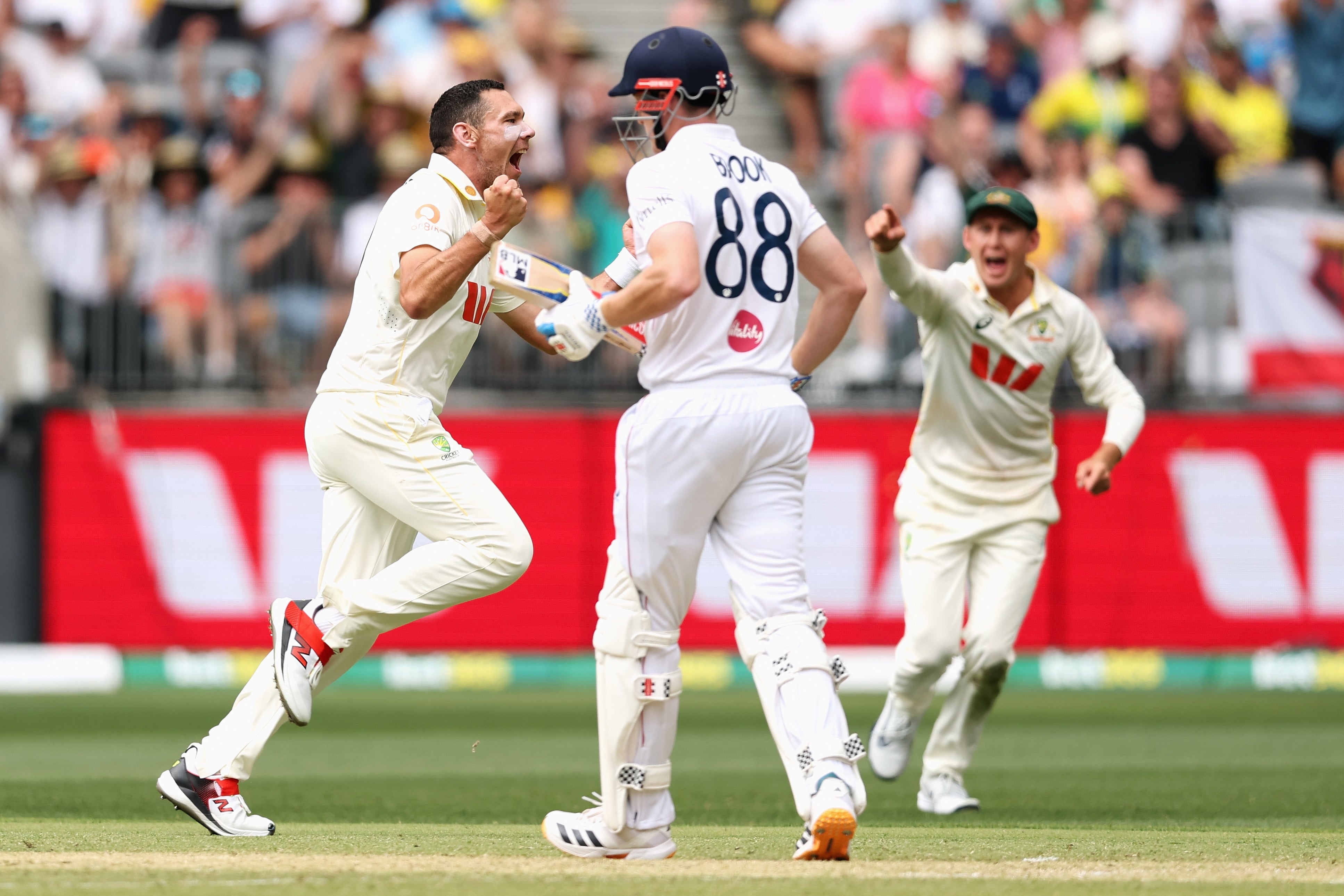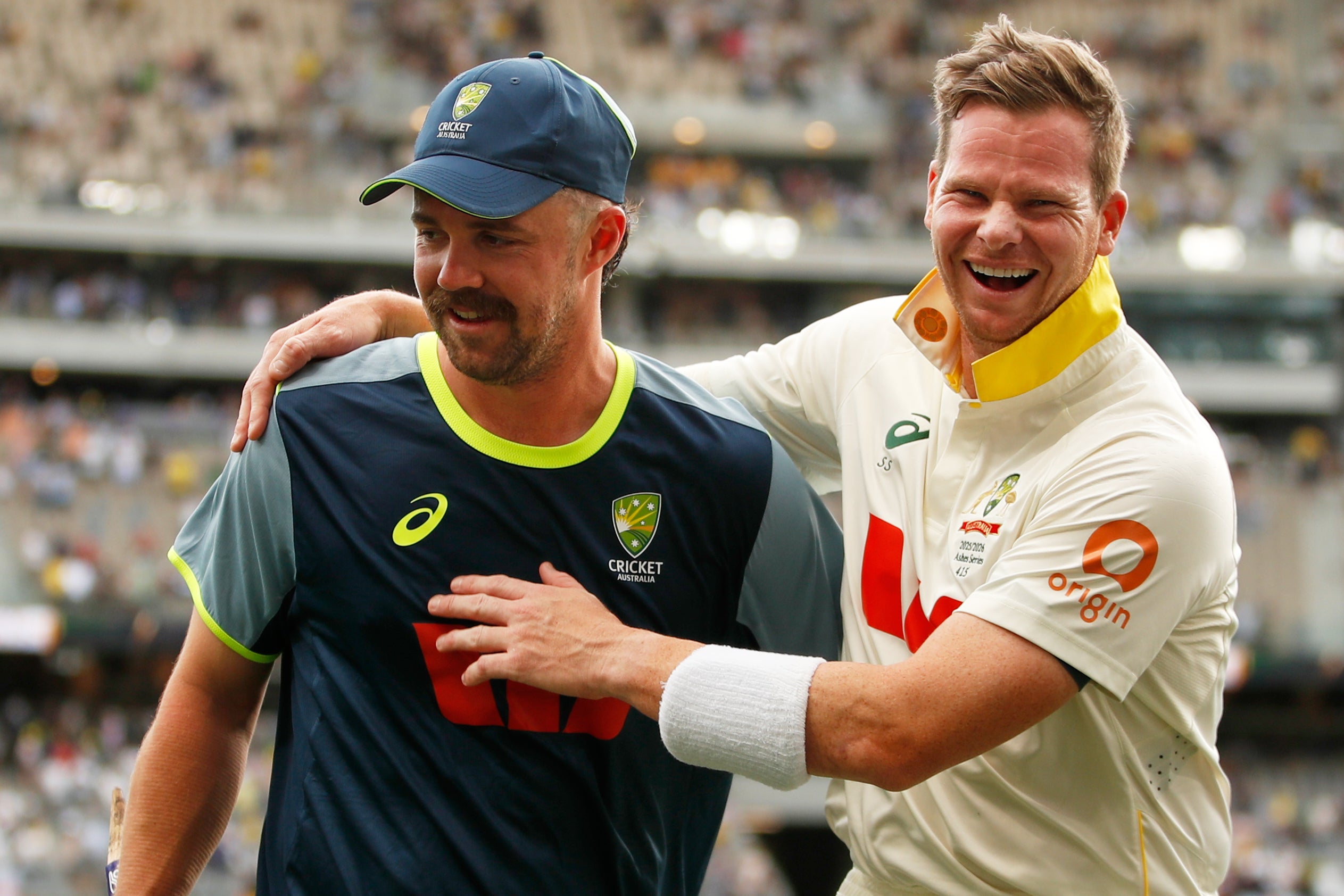Shell-shocked is the word you’re looking for. On a morning where England came into the game ahead, on an afternoon when they had the match in their grasp, to an evening where they had lost.
Two batting collapses of spectacular proportions in as many days, capitalised upon by an astonishing Travis Head century. Australia won by eight wickets, in what turned into a humiliating defeat for the touring side.
Where do you want to start? As a team, England’s two innings lasted 67.3 overs. Not since 1904 have they ever been bowled out twice so quickly. As a whole, the Test was the ninth shortest in history. Perth was always meant to be fast, but not like this.
“I’m shell-shocked a little bit,” captain Ben Stokes said after play. “Wide-eyed after that to see what unfolded, particularly after the first day. Our third innings with the bat and then to see what Head did… We’ll let this hurt, because it does.”

England haven’t won a Test match in Australia since 2011. Opportunities to do so are few and far between and now they need to win three of the remaining four if they are to take a series that Stokes and Brendon McCullum both described as the biggest of their lifetimes. When England wake up tomorrow and the adrenaline of a manic 24 hours has worn off, it will be replaced with an ache. If they fail to turn around this series, this is a day that will go down in infamy in English cricket.
It’s the afternoon session on day two that will haunt England. As the tourists went to the lunch break, they were 99 runs ahead and only one wicket down in their second innings. The idea that they could possibly finish the day having lost was nonsensical if not an impossibility. The pitch and the occasion was settling down. The raw adrenaline that saw 19 wickets fall on day one had faded and an afternoon of calm lay in wait. All England had to do was bat the day, let their bowlers have a rest, and build a steady lead.
England’s cause for optimism was well-founded. Their collapse on day one had largely been the result of a one-man show. Mitchell Starc had been nothing short of phenomenal in his seven-wicket haul, but his supporting cast had been middling. In particular, Scott Boland had been treated with disdain. His 10 first-innings overs had been flailed for more than 60 runs. You can guess what happened next.

In the space of two Boland overs, all of Duckett, Pope and Harry Brook were gone. Joe Root and Ben Stokes followed shortly after at the hands of Starc. Pick the equation you want; England lost three wickets with the score on 76, four wickets for 11 runs, six for 39 and nine for 99. This was their match to win and their series to grab hold of. All of a sudden, they had set Australia 204 to win and it was to be a final-session shootout.
“We were very confident having a 200-run lead for Australia to chase,” Stokes said. “The way that the wicket was playing was tough.”
Just 28 overs later, England had lost.
Head’s century, off 69 balls, was nothing short of phenomenal. The joint-third fastest Test century by an Australian, he finished on 123 off 83 balls, striking 16 fours and four sixes. It was the first time he had ever opened, promoted only after regular opener Usman Khawaja was unable to bat due to injury.

“I sort of floated the idea (with the coach and captain),” Head said to Channel Seven of opening the batting. “It’s nice to play a role. We threw some ideas around the room and I was pretty keen to do it. I could quite easily have been out in the first over, it didn’t really matter. It was the right process; the right way to go about it.”
A relentlessly aggressive batter, Head took the attack to England and didn’t let up. When England thought they may have had a sliver of hope as Jake Weatherald went with the score on 75, shortly afterwards, Head struck talisman Stokes for three consecutive boundaries. He straight pulled Jofra Archer for six. England were throwing everything at him, but it wasn’t enough.
“It’s up there,” Australian captain Steve Smith said of whether it was the greatest innings he had seen.
There’s no denying Head’s brilliance. Few in the world could have managed what he did. But such an innings was only possible because of the ultimately meagre total England set. Head said himself that it wouldn’t have mattered if he got out in the first over. A mindset only possible when chasing a low total where less value needs to be placed on any individual wicket.

As Head left the field after finally being dismissed, Stokes and Zak Crawley ran up to congratulate him. To England, rather than their collapses being cause for a rethink of their own attacking strategies, Head’s success was proof that it was the right way to go.
“You can label it how you want when you’ve got the outcome,” Stokes responded as to whether England went too far with their continued intent after lunch. “The batsmen who found success were ones who didn’t let go of any scoring opportunities that came their way.”
England now have the best part of two weeks before the next Test. There is a two-day match against an Australian Prime Minister’s XI in Canberra next week, where none of the first team were expected to play. It is still to be confirmed whether that will change. Several batters are in need of runs, in particular Crawley, who bagged a pair across the match.
Over the last 15 years and more, you’d have thought England had found every possible way to lose Test matches in Australia. Somehow, they found a new one.
How to watch every Ashes match on TV and online
Ashes 2025/26 schedule: Date, venue and start time for every Test match
When is the next Ashes Test? TV channel, date and start time for Australia vs England
Ashes 2025 live: Head inspires Australia as England collapse in first Test
Why Travis Head was promoted to open before ‘one of the great Ashes knocks’
Michael Vaughan: England can’t afford to waste practice match for second Test







